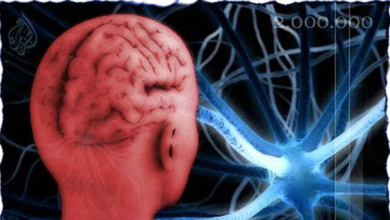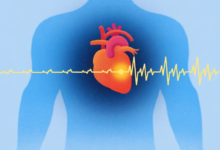Why Do You Still Feel Tired After Sleeping? The Secret Lies in Deep Sleep

Many people celebrate the weekend by sleeping in, believing they’re finally achieving total rest. Yet, as the new week begins, that sense of fatigue returns—as if they’ve just come back from a long, exhausting journey. This cycle continues daily, despite getting 8 or more hours of sleep. So, why does the tiredness never seem to go away?
A poet once wished that God would close his eyelids if struck by the kind of deep sleep that truly revives a person—unknowingly touching on a solution to a problem faced by millions: chronic fatigue despite ample sleep.
The answer lies in one critical sleep phase: deep sleep.
According to the U.S.-based Sleep Foundation, insufficient deep sleep leads to:
- Constant drowsiness and low energy
- Poor concentration and alertness
- Difficulty learning or forming new memories
- Increased cravings for high-calorie foods
The Four Stages of Sleep
When you fall asleep, your body cycles through four main stages:
- Stage 1 (Light Sleep): A brief transition from wakefulness to sleep, where heart rate and breathing begin to slow.
- Stage 2: A deeper sleep stage where body temperature drops and muscles relax. This stage makes up about 50% of total sleep.
- Stage 3 (Deep Sleep): Brain waves slow to their lowest frequency. Waking up during this phase can cause disorientation and mental fog for up to an hour.
- REM Sleep (Rapid Eye Movement): Brain activity mimics wakefulness, while muscles remain inactive. This is when most vivid dreaming occurs.
Each sleep cycle lasts approximately 90–120 minutes, and a person goes through 4 to 6 full cycles per night.
Deep Sleep: The Body’s Nightly Repair Mode
While all sleep stages are essential, deep sleep is uniquely restorative. During this phase, the body releases growth hormone, which repairs muscles, bones, and tissues. It also strengthens the immune system and plays a role in regulating blood sugar (glucose) metabolism.
Deep sleep is also crucial for cognitive functions, language learning, motor skills, and brain development. Research published in JAMA Neurology suggests that lack of deep sleep may have long-term consequences, including an increased risk of dementia. A study from Monash University and the Turner Institute for Brain and Mental Health in Melbourne linked reduced deep sleep with a higher likelihood of cognitive decline.
How Much Deep Sleep Do You Need?
On average, adults need at least 7 hours of sleep per night, with deep sleep accounting for around 20% of that—roughly 90 minutes. Deep sleep typically begins within the first hour of falling asleep, and its duration shortens with each successive cycle throughout the night.
After periods of sleep deprivation, the body naturally increases deep sleep to recover. Conversely, people who nap or sleep regularly may require slightly less deep sleep at night because their needs are partially met during the day.
It’s also common for older adults to get less deep sleep, which is often offset by longer periods in other non-REM stages.
How to Improve Your Deep Slee
Improving the quality of deep sleep doesn’t require drastic changes—just a few simple habits, according to the Telegraph:
- Stick to a consistent sleep schedule, even on weekends. Your body’s internal clock thrives on routine.
- Avoid the snooze button. A 2022 study published in the Journal of Physiological Anthropology found that snoozing prolongs sleep inertia (that grogginess upon waking) by up to 20 minutes.
- Exercise regularly to promote deeper, more restful sleep.
- Expose yourself to natural daylight in the morning to help regulate your circadian rhythm.
- Avoid caffeine in the afternoon and evening, as it can delay your body’s ability to enter deep sleep.
In summary, getting enough hours of sleep is only part of the equation. What truly restores your mind and body is the quality of that sleep—especially how much of it is spent in deep, undisturbed rest.








